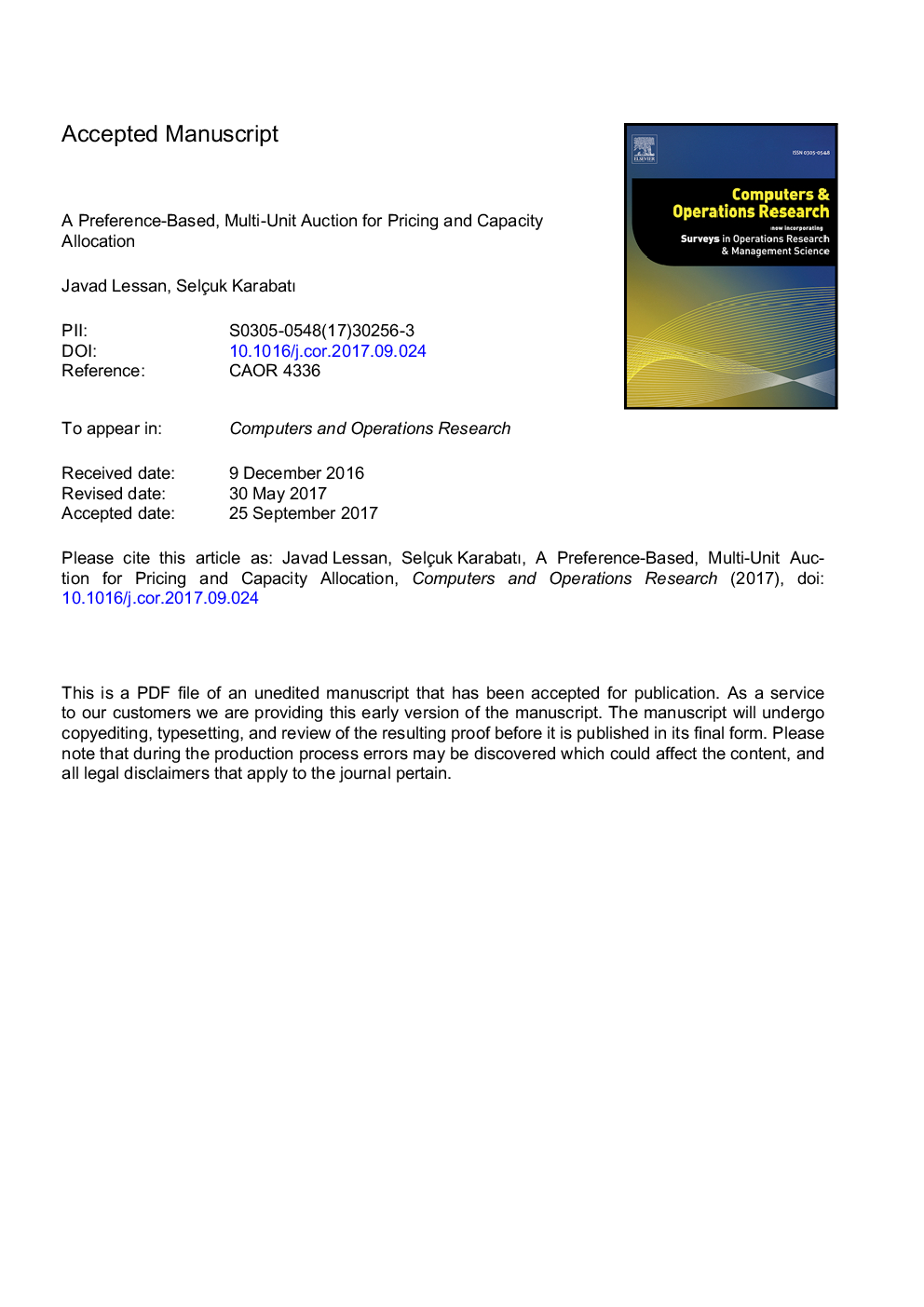| Article ID | Journal | Published Year | Pages | File Type |
|---|---|---|---|---|
| 6892715 | Computers & Operations Research | 2018 | 34 Pages |
Abstract
We study a pricing and allocation problem of a seller of multiple units of a homogeneous item, and present a semi-market mechanism in the form of an iterative ascending-bid auction. The auction elicits buyers' preferences over a set of options offered by the seller, and processes them with a random-priority assignment scheme to address buyers' “fairness” expectations. The auction's termination criterion is derived from a mixed-integer programming formulation of the preference-based capacity allocation problem. We show that the random priority- and preference-based assignment policy is a universally truthful mechanism which can also achieve a Pareto-efficient Nash equilibrium. Computational results demonstrate that the auction mechanism can extract a substantial portion of the centralized system's profit, indicating its effectiveness for a seller who needs to operate under the “fairness” constraint.
Related Topics
Physical Sciences and Engineering
Computer Science
Computer Science (General)
Authors
Javad Lessan, Selçuk Karabatı,
